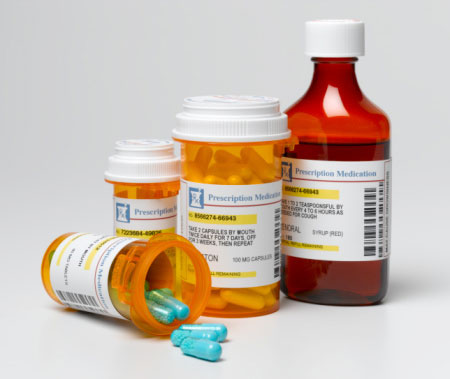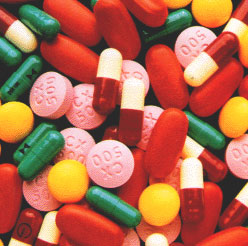The diagnosis is divided into the following parts
- Case History
- Physical Examination
- Lab Examination
- Blood tests
- CBC
- Fasting blood glucose test
- Liver function test (LFT)
- Hormone tests
- Thyroid function tests
- Urine analysis
- Blood tests
- Other Tests
- Imaging Studies
- Angiography-
- Dynamic Infusion Cavernosometry and Cavernosography:
- Duplex ultrasound
- Penile nerve function-
- Ultrasonography-
- Penile brachial index-
- Imaging Studies
- Erectile Function Test
- Vasoactive injections
- Nocturnal penile tumescence
- Penile tumescence monitor
- Biothesiometry
Diagnosis of impotency
1.? Case History :
This involves taking an in-depth account of the background of the patient including his life style along with medical, personal and sexual history.
- Medical History – Diseases like hypertension, diabetes, coronary disorders, scleroderma, and liver cirrhosis can constitute the etiology of erectile dysfunction. It’s important to know if the patient is suffering from any of these.
- Surgeries – If the patient has undergone any surgeries in the past, it’s important to have a look into it as the surgery may have caused nerve damage.
- Sexual History – It’s important to analyze the sexual history, right from the onset of erectile dysfunction to the severity of the situation. Questions will include the circumstances, frequency and durations of erections, if any. Strain in the current relationship and history of past sex partners should also be looked into.
- Trauma or Injury – Any fall, injury or accident should be reported as it can lead the physician to any nerve damage or blood vessel damage due to external trauma.
2. Physical examination:
A thorough examination of the venereal can reveal some of the causes if erectile dysfunction. The physician can detect peyronie’s disease, hypospodiasis, and hypogonadism. Digital examination of the rectum (inserting lubricated, gloved fingers in the orifice of female sexual organ to check for abnormalities) can help detect prostrate abnormalities. Prostate can also cause nerve damage or block the arteries.
3. Lab Examination:
Lab examinations are based on the case history. It is not necessary that every patient has to undergo these tests.
- Blood tests
- CBC – Complete blood test evaluates the level of lipids in the blood such as cholesterol, triglycerides which can lead to arteriosclerosis, which can lead to erectile dysfunction. Besides this it will also calculate red blood cells (RBC), white blood cells (WBC), total amount of hemoglobin in the blood, mean corpuscular volume (MCV), mean corpuscular volume (MCH), and mean corpuscular hemoglobin concentration (MCHC).
- Fasting blood glucose test – This can help detect diabetes which can lead to erectile dysfunction.
- Liver function test (LFT) – This involves examination of enzyme and serum creatinine levels. Live cirrhosis or impaired functioning can cause erectile dysfunction.
- Hormone tests
These tests are vital in cases where the patient is suffering from a diminished or absent libido, depression or signs of secondary sexual character (hypogonadism). In the morning, the hormone levels are the highest than any other time of the day. Hormone tests include measuring the morning serum testosterone levels which is a common endocrine cause.? A hormone test will give an estimate of- Sex hormone binding globulin (SHBG)
- Estrogen-Etradiol (E2)
- Total testosterone (T)-
- Free Testosterone (T) or bioavailable testosterones are the ones that are getting used.
- Dehydroepiandrosterone sulfate (DHEAS)
- Dedydroepiandrosterone (DHEA)
- Follicular stimulating (FSH)
- Androstenedione
- Luteinizing hormone (LH) – elevation of this hormone indicates that the pituitary gland is hyper functioning. The hypothalamus regulates the testosterone levels. High level of LH with low level of testosterones indicates primary testicular (Leydig cell) failure. Contrary to this, low testosterone level indicates a central defect.
- Thyroid function tests
Hyperthyroidism or hypothyroidism can cause erectile dysfunction. It’s important to determine that TSH is normal. - Urine analysis
After collecting the urine, it is judged on the basis of its physical, microscopic and chemical appearance.- Physical appearance -This includes the color, clarity and its appearance to the naked eye.
- Microscopic appearance – The urine is examined under a microscope to check the appearance of cells, foreign body, urine? crystals, mucus and presence of other microorganisms.
- Chemical appearance – determined by a dipstick, this test determines the different substances present in the urine.
This analysis helps to determine if there is kidney infection, diabetes mellitus and hypertension as presence of any of these diseases may lead to erectile dysfunction.? Post the completion if these lab tests, the physician should have a better picture about the status of the disorder, treatments and can suggest further tests, if required.
4. Other Test:
These tests are performed if the physician feels the need to study penile or pelvic blood flow, nocturnal erections and other blood tests.
- Imaging Studies– this test is preformed in the case of trauma, accident or surgery, where there can be potential nerve and blood vessel injuries.
- Angiography – This is performed in patients who have undergone vascular surgeries that have caused injury to some arteries or veins. These patients may require vascular reconstruction.
- Dynamic Infusion Cavernosometry and Cavernosography -? This test helps to determine the penile vascular status in impotent patients. This test ascertains the arterial and/or venous insufficiency in the male sexual organ.
- Duplex ultrasound – This test is used to evaluate the circulation of blood in the male sexual organ, venous leak, artherosclerosis and scarring or calcification of erectile tissues. Patients are injected with prostaglandin E1 (PGE1) to induce erection. A measurement of caversonal arteries within the corpora is taken. Through ultrasound, the vascular dilation is observed and the penile blood pressure measured. This is compared to the measurement of the male sexual organ in the flaccid state.
- Penile nerve function – The bubocavernosus reflex test is used to determine the nerve sensation in the male sexual organ. The head of the male sexual organ is squeezed which results in the orifice of female sexual organ contracting under normal conditions. The latency between the squeezes is measured by inserting a gloved, lubricated finger in the orifice of female sexual organ.
- Ultrasonography – This test helps to find any abnormalities in the testes and epididymides. Abnormalities in the prostate and the pelvis can be determined by transrectal unltrasonography.
- Penile brachial index -This process involves measuring the blood pressure in the male sexual organ and that of the arm and comparing the two. This can help to detect obstruction in the arterial blood flow.
5. Erectile function test:
- Vasoactive injections – Injecting certain chemical in the male reproductive organ can cause erection by vasodilatation (dilating the blood vessels). These injections can produce an erection that can last for 20 minutes. A special dye is injected in the blood stream and penile pressure and x-ray is measured.
- Nocturnal penile tumescence – This test involves covering a special elastic band around the male sexual organmale reproductive organ for two three consecutive nights. This is especially useful in finding out if the cause is psychogenic or organic. If the male reproductive organ gets erect during rapid eye movement, the force and duration are noted on a graph. If the erection is absent or inadequate, it indicates an underlying physiological cause while presence of an erection suggests psychogenic cause.
- Penile tumescence monitor – This is a special monitor that is used to measure the size of the erection. This monitor is placed near the base and at the corona of the male reproductive organ. Another device is connected that monitors the graph recording the force and duration of erections occurring during the sleep. This monitor is trapped to the leg. The patient has to undergo this test for several nights to get an accurate reading of the erections.
- Biothesiometry – The vibration sensitivity of the male reproductive organ is detected by the means of biothesiometry. A small electromagnetic test probe is placed on the right and left sides of the shaft and the glans. The amplitude of the vibration is adjusted until the subjective sensory threshold is reached, which is indicated by the patient. The vibrational sensory threshold is determined on each location. This test helps to detect sensory failures which can lead to erectile dysfunction.





